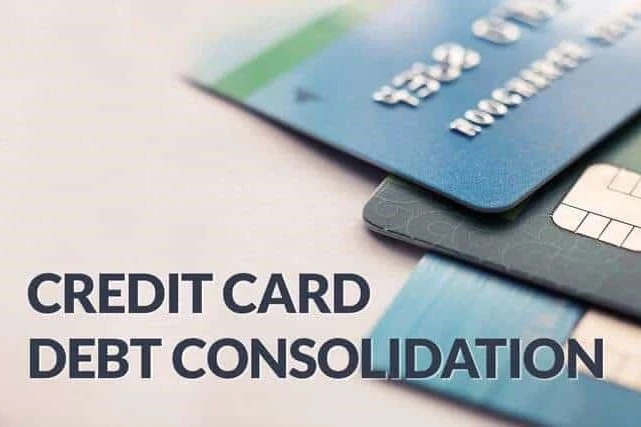Debt consolidation combines multiple debts into a single payment. If you qualify for a substantially lower interest rate, this may be a good idea.
Many or all of the products featured here are from our partners who compensate us. This affects which products we write about and where and how the product appears on a page. However, this does not affect our assessment. Our opinions are our own. Here's a list of our partners and how we make money.
Debt consolidation moves multiple debts, usually high-interest debts such as credit card bills, into one single payment. If you can get a lower interest rate, debt consolidation may be a good idea for you. This will help you reduce your total debt and restructure it so that you can pay it off faster.
If you're dealing with a manageable amount of debt and just want to restructure multiple bills with different interest rates, payments, and due dates, then debt consolidation is the right method for you to tackle on your own.
Key Takeaways:
- How to consolidate your debt
- Debt Consolidation Calculator
- When debt consolidation is a smart move
- When debt consolidation is not worth it
How to consolidate your debt
There are two primary ways to consolidate debt, both of which consolidate your debt payments into one monthly bill.
- Get a 0% interest, balance-transfer credit card: Transfer all your debt to this card and pay off the balance in full during the promotional period. You probably need good or excellent credit (690 or higher) to qualify.
- Get a fixed-rate debt consolidation loan: Use the money from the loan to pay off your debt, then repay the loan in installments over a fixed period. You may qualify for a loan if you have bad or fair credit (689 or below), but borrowers with higher scores will likely qualify for the lowest rates.
Two additional ways to consolidate debt are to take out a home equity loan or a 401(k) loan. However, these two options involve risk – your home or your retirement. Regardless, the best option for you depends on your credit score and profile as well as your debt-to-income ratio.
When debt consolidation is a smart move
Success with integration strategies requires the following:
- Your monthly debt payments (including your rent or mortgage) do not exceed 50% of your monthly gross income.
- Your credit is good enough to qualify for a credit card with a 0% interest term or low interest debt consolidation loan.
- Your cash flow consistently covers your loan payments.
- If you choose a consolidation loan, you can pay it off within five years.
Here's a scenario when consolidation makes sense: Say you have four credit cards with interest rates ranging from 18.99% to 24.99%. You always make your payments on time, so your credit is good. You may qualify for an unsecured debt consolidation loan at 7% – a significantly lower interest rate.
For many people, consolidation reveals a light at the end of the tunnel. If you take out a loan with a three-year term, you know it will be paid off in three years — assuming you make your payments on time and manage your spending. Conversely, making minimum payments on credit cards can mean months or years before you pay them off, all while accumulating more interest than the initial principal.
Is it a good idea to consolidate credit cards?
Consolidate your loans if you can get a loan with better terms and/or it will help you make payments on time. Just make sure this consolidation is part of a larger plan to get out of debt and you don't run up new balances on the cards you've consolidated. Read about how to deal with credit card debt.
How does a debt consolidation loan work?
A personal loan allows you to pay your creditors yourself, or you can use a lender that sends money directly to your creditors. Read about the necessary steps to get a personal loan.
Debt Consolidation Debt Hurt Your Credit?
Debt consolidation can help your credit if you make on-time payments or if consolidation shrinks your credit card balance. Your credit can be damaged if you run up credit card balances again, close all your outstanding cards, or miss payments on your debt consolidation loan. Learn more about how debt consolidation affects your credit score.
When debt consolidation is not worth it
Consolidation is not a silver bullet for debt problems. It does not address the excessive spending habits that created the debt in the first place. This is also not a solution if you are overwhelmed by debt and have no hope of paying it off even after reduced payments.
If your debt load is small—you can pay it off in six months to a year at your current pace—and you'll save only a small amount in the consolidation, don't bother.
Try using a debt repayment method instead, such as a debt snowball or debt avalanche. You can use a credit card repayment calculator to test different strategies.
If your total debt is more than half of your income, and the calculator above reveals that debt consolidation isn't your best option, you're better off getting out of debt than treading water.

